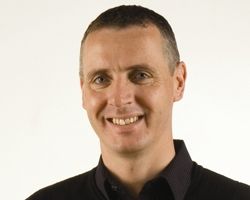Psychology expert joins Economic and Social Research Council
Professor of Psychology, Gordon Harold, has been invited to join the Capability Committee of the Economic and Social Research Council (ESRC).
 The ESRC is the UK's largest organisation for funding research on economic and social issues – supporting the work of over 4,000 researchers with potential to impact on business, the public sector and the third sector.
The ESRC is the UK's largest organisation for funding research on economic and social issues – supporting the work of over 4,000 researchers with potential to impact on business, the public sector and the third sector.
The role of the ESRC’s Capability Committee is to help ensure that the UK meets its potential in terms of substantive research in the areas of social and behavioural science, while working alongside other national and international research organisations. More about the ESRC’s Capability Committee.
Director of Research and Enterprise at Sussex, Dr Ian Carter, said: “Firstly, congratulations to Gordon for this appointment. Being connected to major research funders - and thence to policymakers - is a key element of delivering high quality research and knowledge exchange.
“Gordon’s position will enable him, and through him the University, to gain a better understanding of the research landscape, to influence its development, and to enhance our ability to respond.”
Professor Harold said: “It’s a great privilege to join the ESRC’s Capability Committee.
“Cutting-edge research increasingly requires interdisciplinary and international perspectives to have the greatest possible impact on society.
“I’m looking forward to facilitating this through my remit on this Committee. It’s a valuable opportunity to help shape the future of UK social and behavioural science research, knowledge exchange, training and research-led impact.
The main focus of Professor Harold’s work on the committee will be representing the discipline of psychology with a particular focus on mental health, biosocial research and capability building in the UK.
Professor Harold is currently Director of the Rudd Centre for Adoption Research and Practice at Sussex. The Centre investigates the processes that affect the development of children and young people across multiple family settings, with a particular emphasis on challenges faced by adopted children.
